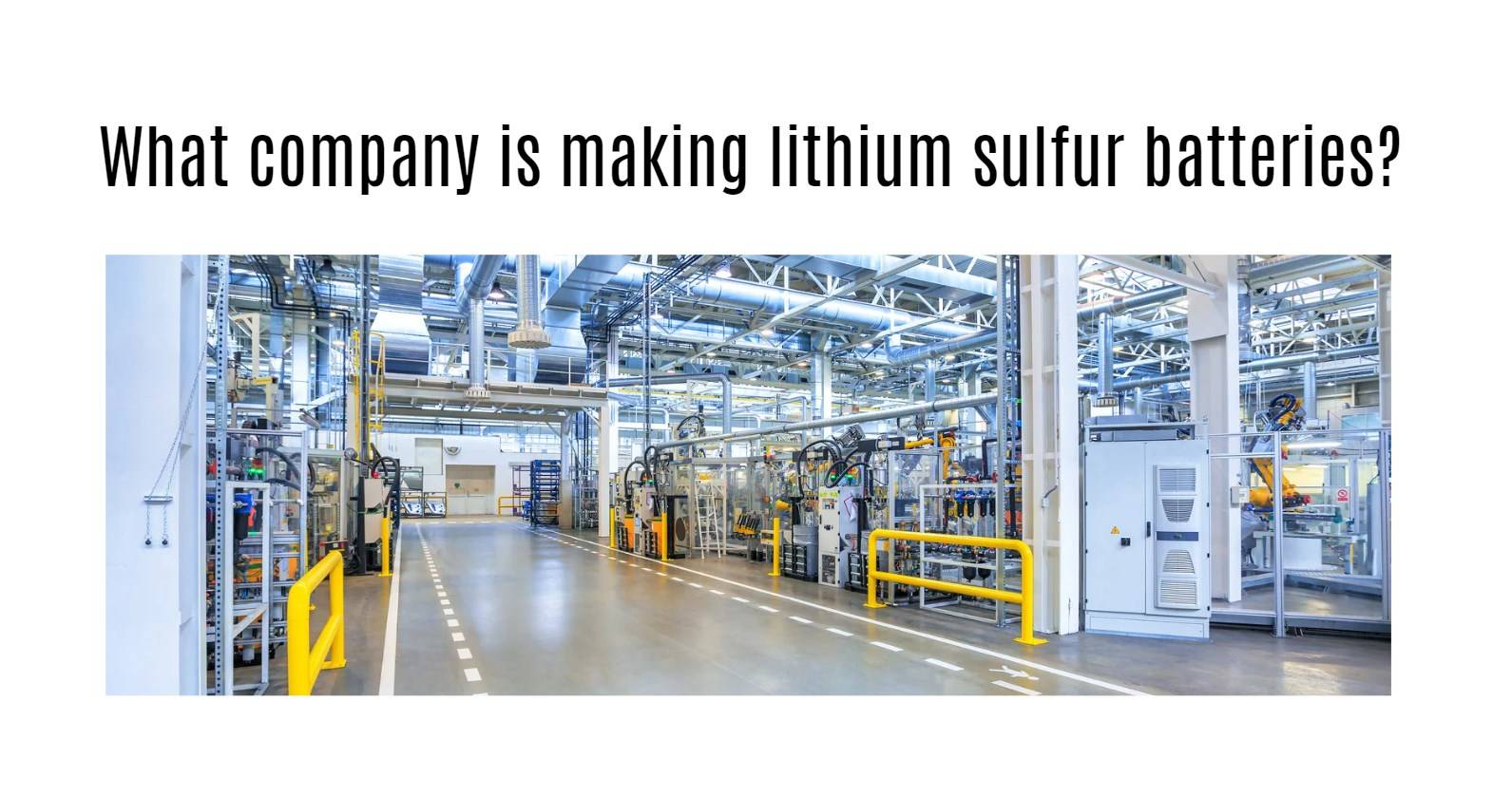Table of Contents
ToggleHow are lithium-sulfur batteries changing the energy landscape?
Lithium-sulfur batteries are set to change the energy landscape by providing significantly higher energy densities—potentially up to five times that of conventional lithium-ion batteries. This capability allows for lighter and more efficient energy storage solutions, making them ideal for applications ranging from electric vehicles to portable electronics.
What companies are at the forefront of lithium-sulfur battery technology?
Several companies are leading the charge in lithium-sulfur battery technology:
- PolyPlus Battery Company: Known for its innovative approaches, including protective solid electrolyte membranes.
- NexTech Batteries Inc.: Focused on developing high-performance lithium-sulfur batteries with exceptional safety.
- Sion Power: Specializes in high-energy-density solutions for aerospace and automotive applications.
- Li-S Energy Limited: Combines graphene technologies with lithium-sulfur designs to enhance performance.
- Lyten, Inc.: Engaged in developing advanced materials for next-generation batteries.
Chart: Key Players in Lithium-Sulfur Battery Development
| Company Name | Focus Area | Location |
|---|---|---|
| PolyPlus Battery Company | Solid electrolyte membranes | United States |
| NexTech Batteries Inc. | High-performance Li-S batteries | United States |
| Sion Power | Aerospace and automotive applications | United States |
| Li-S Energy Limited | Graphene-enhanced Li-S technologies | Australia |
| Lyten, Inc. | Advanced materials for battery systems | United States |
Which innovations are driving advancements in lithium-sulfur batteries?
Innovations driving advancements include:
- Healable Cathodes: Recent developments have introduced healable cathode materials that enhance stability and lifespan.
- Graphene Integration: The use of graphene in cathodes is improving conductivity and overall performance.
- Solid-State Designs: Transitioning to solid-state configurations is increasing safety and energy density.
Why is lithium-sulfur technology considered a breakthrough?
Lithium-sulfur technology is considered a breakthrough due to its potential to surpass the limitations of current lithium-ion technologies. With lower material costs and higher theoretical energy densities, these batteries could enable longer-lasting power sources that are more environmentally friendly.
Who are the key players in the lithium-sulfur battery market?
Key players include:
- PolyPlus Battery Company
- NexTech Batteries Inc.
- Sion Power
- Li-S Energy Limited
- LG Chem
These companies are investing heavily in research and development to bring their technologies to market.
What challenges do companies face in developing lithium-sulfur batteries?
Challenges include:
- Cycle Life: Ensuring long-lasting performance over many charge-discharge cycles remains a hurdle.
- Manufacturing Scalability: Developing processes that can be scaled up without compromising quality is critical.
- Material Stability: Finding stable materials that can withstand operational stresses is essential for commercial viability.
Where can consumers find alternatives to traditional lithium-ion batteries?
For consumers looking for alternatives to traditional lithium-ion batteries, Redway Power offers innovative solutions with their advanced lithium technologies. Their products provide reliable performance across various applications while ensuring safety and efficiency.
Tips for Battery Wholesale Buyers
When considering OEM orders from reliable manufacturers like Redway Power, keep these points in mind:
- Quality Assurance: Verify that the manufacturer meets international quality standards.
- Customization Options: Look for manufacturers that provide tailored solutions based on specific needs.
- Supply Chain Reliability: Assess their ability to meet delivery timelines consistently.
With over 13 years of experience, Redway Power is an excellent choice for wholesale buyers looking for dependable products that serve as effective alternatives to lead-acid batteries.
Redway Power Expert Views
“Investing in lithium-sulfur technology is crucial for the future of energy storage solutions. At Redway Power, we focus on developing high-quality products that not only meet but exceed industry standards,” states an expert from Redway Power.
FAQ Section
- What advantages do lithium-sulfur batteries have over traditional options?
Lithium-sulfur batteries offer higher energy densities, lower costs, and improved safety compared to traditional lithium-ion technologies. - Which companies are leading the development of lithium-sulfur technology?
Key players include PolyPlus Battery Company, NexTech Batteries Inc., Sion Power, Li-S Energy Limited, and Lyten, Inc. - What challenges do developers face with lithium-sulfur batteries?
Major challenges include ensuring long cycle life, scaling manufacturing processes, and maintaining material stability during operation.



